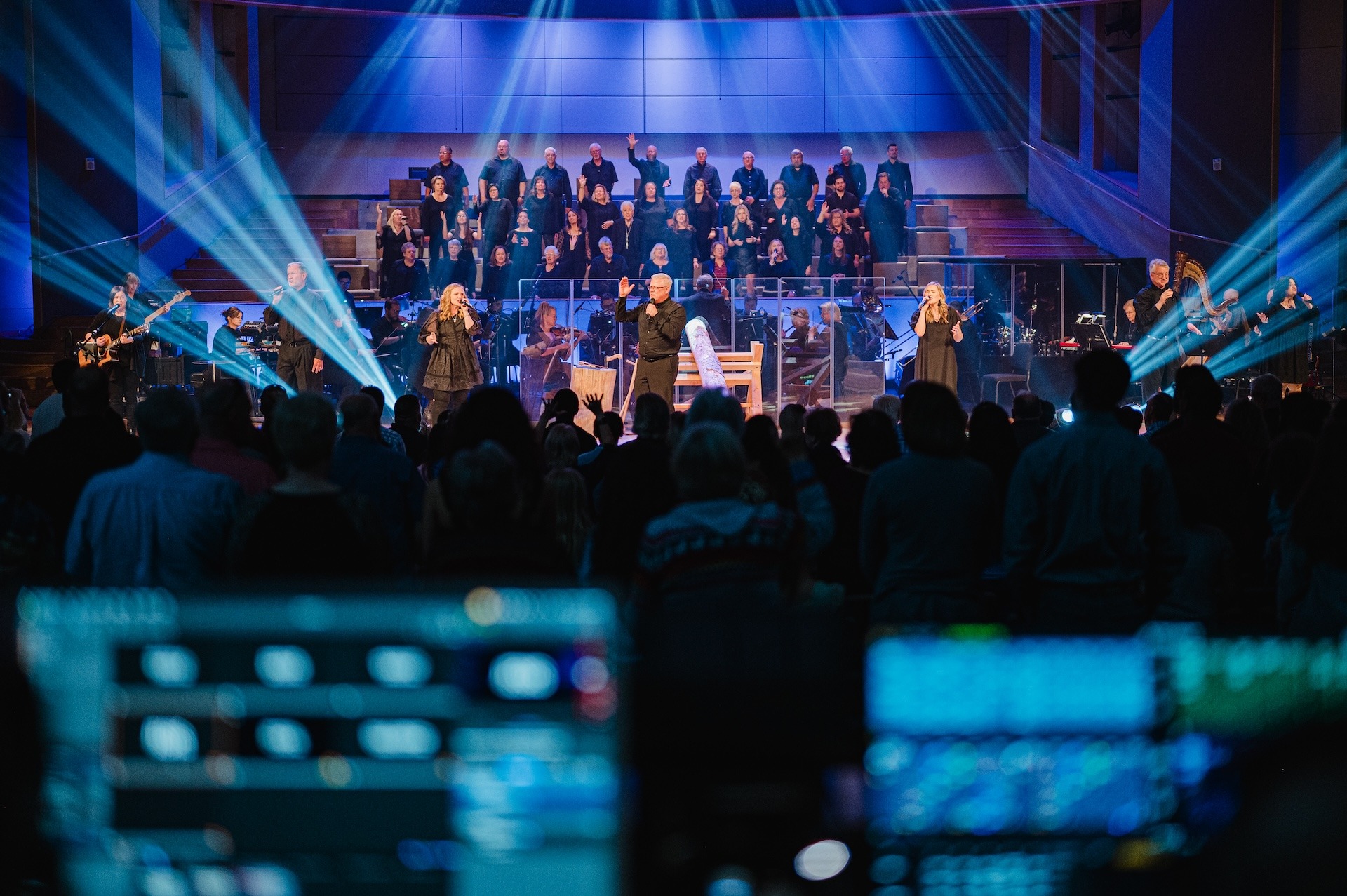The Scientist Behind The Art
Ever sat in a theater and felt the bass pulse through the floor or heard a voice carry so effortlessly that it seemed to hang in the air, waiting for...

Is your message 1 in 40 or 1 in 11 million?
In the realm of worship, the power of sound transcends mere auditory experience. As a pastor or worship leader, your congregation isn’t just hearing your message, they’re listening to it. Or, at least that’s what they should be doing. This distinction between active listening and just…listening lies in the brain’s ability to process information. When said simply, that sounds like no big deal. But when you consider that our brains process 11 million pieces of information per second, and only consciously process roughly 40 of those 11 million pieces per second…you start thinking, “How do I ensure my message is among the 40, and not 10,999,960?”
How to connect with your top priority: The Brain.
Among the information that our brains process every second is sound. That’s good sound, bad sound, reverberated sound, soft sound, loud sound—the sound that you’re trying to make stand out amongst all the rest, and the sound that carries your message to the ears of your congregation (who are your top priority). As a church leader, to connect with that top priority, you must put yourself in their shoes—or rather, their seats.
Think about hearing something important and wanting to concentrate on it. A story across the table at a crowded restaurant, the airport announcement about your flight’s new gate, the final minutes of a close game that you can’t hear because your kids are playing in the background… Incredibly enough, the brain can overcome a lot of that unnecessary noise, but at a cost. Active listening becomes just listening and vital messages are lost, sparking miscommunication. You leave feeling exhausted, struggling to remember all that was said or heard. So, how do you transform the experience so that your message is not only listened to and heard, but better yet—shared?
The pivotal role that intentionally designed AV systems play in cognitive processing.
Cognitive processing—aka the mental action of acquiring knowledge and understanding through attention, language, memory, perception, and thought, is how we “filter” through that unnecessary noise. Reverberation, or reverb, is a key factor in this equation. When sound waves reflect off surfaces and create prolonged echoes, it can interfere with the clarity of speech and music. Excessive reverb muddles the direct sound, making it harder for listeners to focus, understand, and retain information. This is especially challenging in environments like worship spaces, where clear communication is vital for meaningful engagement. Reverb not only affects our ability to hear but also impacts cognitive functions such as attention, memory, and perception. By carefully controlling the acoustic environment and managing reverb, we can enhance the listening experience.
The science behind the art.
By leveraging the psychology of listening, we can engineer soundscapes where every word is clear, every note resonates, and every listener can fully immerse themselves in the message. Our intentionally designed AV systems are crafted to help your congregation hear, understand, perceive, share, and retain your message more effectively. By addressing the complexities of cognitive processing, we ensure that every word and note resonates both audibly and emotionally. With CSD, your worship space becomes a place where the science of listening enhances the art of communication, making every service a powerful, unforgettable experience.
Connect with us today to learn more about how we utilize both science and art in our designs.

Ever sat in a theater and felt the bass pulse through the floor or heard a voice carry so effortlessly that it seemed to hang in the air, waiting for...
.png)
We Visit a Lot of Venues. Here’s What We Look for When We Walk Into a New Space: Every space tells a story. And every story has a sound.We’ve been in...

Blueprinting Sound For Worship An architect designs a building to fit its function—we do the same with sound. What does that mean? It means we don’t...